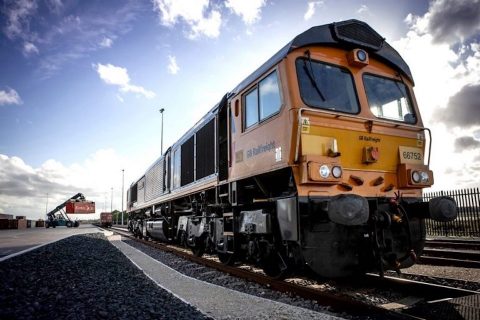First findings rail accident Greece: ‘Personnel insufficiently trained’

The investigation following the deadly railway accident in Greece has unearthed some worrying findings. The Greek Railway Regulatory Body, which is reponsible for the work, speaks of “insufficient training of personnel carrying out critical tasks”, causing inadequacies that might have contributed to the accident.
The investigation on the railway accident in Tempi, Greece, that left at least 57 people dead and several injured, takes the authorities fifteen years back. The Greek Railway Regulatory Body (RAS) and the Greek supreme court’s prosecutor’s office are investigating all the deadly railway accidents that occurred in Greece from 2008 onwards to find out whether infrastructure manager OSE and railway undertakings complied with the Safety Management Systems (SMS).
At the same time, the prosecutor’s office and the anti-money laundering authority are also scrutinising OSE’s contract during the same timeframe to determine possible ‘financial misconducts and illegalities’. The investigation targets multiple people who held critical positions over the years. A financial scrutinisation is crucial considering that Greece was supposed to invest billions of euros in ETCS, but this investment is still missing.
Insufficient personnel training
In the first place, the deadly accident at Tempi was attributed to “human error”, even though the incompatibility with European railway safety and management systems might suggest otherwise. Nevertheless, the case could be that the accident owes both to human error and the neglect of railway infrastructure in Greece, RAS argues. In the first investigation stages, RAS found “serious evidence of infringement by OSE related to its Safety Management System”.
“The data we have gathered to date show strong indications that the infrastructure manager’s theoretical and practical training to personnel who perform critical tasks (station masters – locksmiths) was incomplete and, therefore, inadequate”, explained the Greek authority.
Call for more evidence
The first round of research concerning safety in Greek railways bears some fruits, at least regarding personnel training rules. It is yet to be determined whether OSE and railway companies active in Greece complied with SMS. As a result, RAS asked OSE and Hellenic Train (the passenger railway company involved in the accident) to provide more and transparent evidence to continue with the investigation. Every day that the two do not provide data, they will be charged a fine of 100,000 euros.
What remains is the financial investigation to provide some findings on what has been going on in the Greek railways in the past years. Untrained personnel certainly pose a danger to railway operations. Nevertheless, the same applies to unrealised safety plans that in other European countries have been implemented for decades. Why weren’t ETCS and telematics used in the Greek railway network, and where did the billion euros of corresponding investments end up? These are some interesting questions for the Greek authorities to answer.
Are you a gamechanger?
Are you a gamechanger in the rail freight industry? And do you want to spread the word? Railfreight.com is currently producing its first-ever magazine, titled The Gamechangers of the Industry. Your company can be included in this magazine. Interested? You can find more information on this webpage.
Also read:




